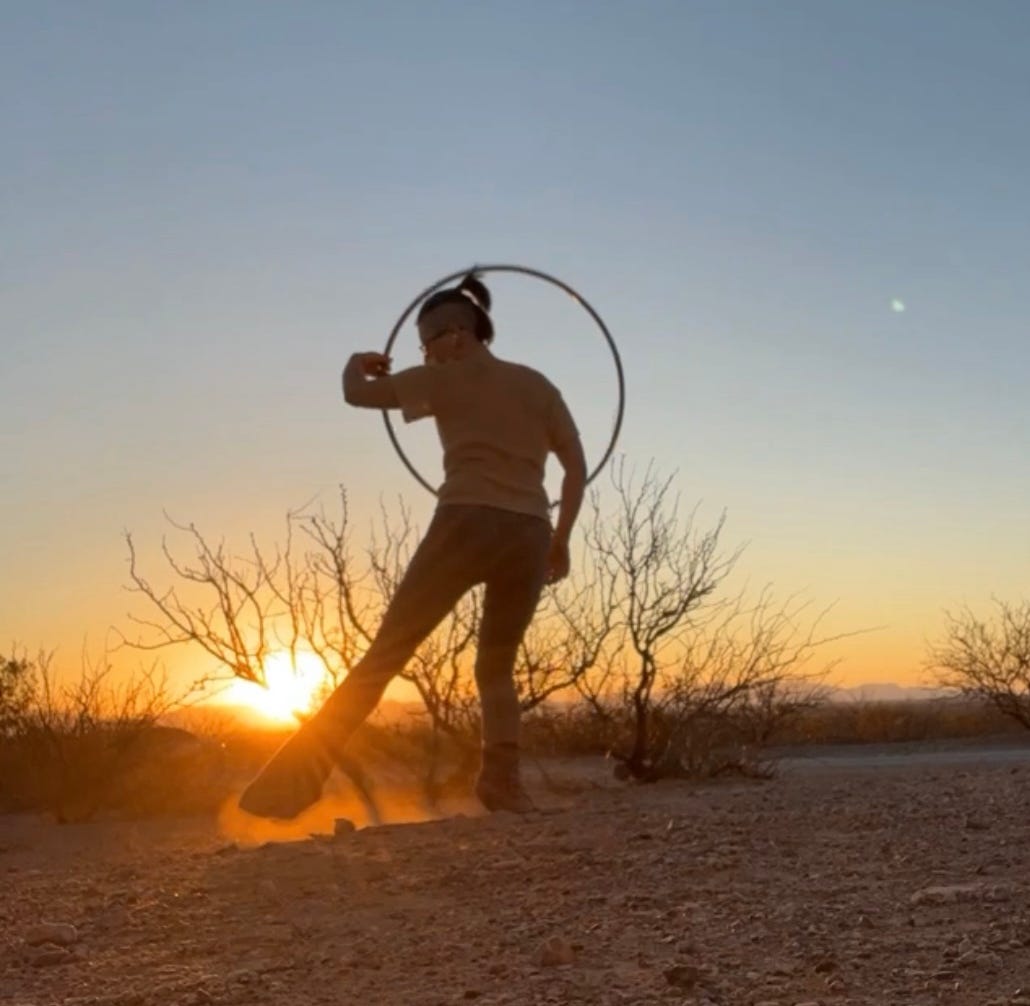Autistic Speech Patterns: Echolalia, Palilalia, Scripting, and Vocal Stimming
When I hear sounds, if they tickle my brain the right way, I will repeat them (often without realizing I am doing it).
Though every single Autistic Person is different, many Autistic People make different noises, repeat sounds, or make other vocalizations.
There are three main types of Autistic vocalizations I'm going to be talking about in today's post: echolalia, palilalia, and vocal stimming.
Despite being 36, I still have all three of these (as well as several other) NeuroDivergent speech patterns.
First, I will define each item, then explain more about these experiences from a human perspective, starting with echolalia, the vocalization I experience the most.
Echolalia is unsolicited, repetitive vocalizations, words, or sounds made by another person (animal or object).
Echolalia is a common part of early childhood speech and development, but for many Autistic People, we may continue to echo throughout our adult lives. Echolalia is a big one for me, so I'm very familiar with it.
I echo things I hear around me - whether it is a word or phrase someone has said, quotes from TV, movies, commercials, songs on the radio, elevator dings, computer notifications, or crosswalks. I even echo animals.
Someone will say a word or phrase (or I will hear a sound), and I will mimic it, repeated back, echoing in the same tonality and rhythm that I heard.
There is immediate echolalia, where I may immediately repeat the sound without realizing I'm doing it right after hearing it - similar to yelling into a canyon and hearing your echo right away.
There is also delayed echolalia, where I may echo a sound on a delay long after hearing it (because something I encounter in my day-to-day life will remind me of that sound, and I will then echo on a delay (sometimes hours, days, weeks, months, or years later).
When I hear sounds, if they tickle my brain the right way, I will repeat them (often without realizing I am doing it).
My partner David and I both enjoy making up words, which I love because it triggers my echoes (because I find them comforting). The minute I hear a new word, I instantly repeat it using the exact tonality he used in his voice.
When I like how something sounds, and my brain wants to keep it, I instantly repeat it (to re-hear the sound and imprint it in my mind).
As an Autistic adult in a romantic relationship with another Autistic Person, who hangs out with other Autistic People who echo, I love that we echo each other. We echo each other's noises, words, and sounds, a way for us to bond and share.
I used to be ashamed of my echoes, but they have become something I'm learning to love and appreciate about myself, my Autistic friends, my loved ones, and my romantic partner(s).
This is part of how my partner and I bond in our Autistic relationship (because we understand where these echoes come from). However, if one didn't know better, one might think I was mocking him.
I DO worry about this in public with strangers who don't understand me or my echoes (and that sometimes I have little to no control over my echoes, especially if I am relaxed or stressed).
Remember this next time you say something, and someone mimics or echoes back what you have just said, or you hear someone copying a sound they've just heard.
Please don't think, automatically, that someone is making fun of you if they mimic you. The phrase "imitation is the sincerest form of flattery" is especially true with people like me who echo.
It is essential to understand that echolalia is often subconscious, meaning I (and those who echo often) do not have complete control over it.
Though stopping my echoes is difficult, I CAN (with great focus) stop myself from echoing.
If I am in an environment where I know I need to be very professional or quiet, I am generally tense and focused on holding myself together (because I know I can't be myself).
There is also palilalia when a person is involuntarily repeating themselves.
Palilalia is when you are repeating your own words and phrases. So, for example, if I am responding to something, I may say, "YES!" But not just one "yes."
Though I mean to say "Yes" only once, what comes out may be more like "yes, yes, yes, yes, yes, yes," and I'll say "yes," like five or six times.
When this happens, I will trail off or mutter under my breath, getting quieter and quieter with each repeat (if I repeat them at an audible volume), or I might repeat a whole phrase, a couple of words, or a sentence.
Someone who experiences palilalia might say, "I would love for you to come over here, come over here, come over here, come over..." and it will just kind of trail off at the end, or they might repeat the same sentence a few times without realizing they've done it.
It's a subconscious thing happening in my brain, and often I don't realize it has happened (with echolalia or palilalia) until someone has pointed it out to me.
My Palilalia could be words, phrases, or sentences I repeat, or I'll say the same word, and it'll trail and say a few times, and I don't even mean to do it, and I can't help it.
I have more control over the echolalia than the palilalia.
Something else that can happen to me, especially when trying to make a point, is I will get stuck in loops of speech.
Often I'll repeat myself with the exact words, but other times I repeat the same thought with varied phrasing.
Regardless of HOW I repeat myself (exact words or paraphrasing), I often will have no idea I've been repeating myself.
Out of all the NeuroDivergent vocal patterns I experience as an Autistic Person, speech loops are the most frustrating, as I have the least control over them.
When I get stuck in loops, I won't realize I've said the same sentence literally three times until someone tells me, "You said that three times.
People don't understand that I'm repeating myself because of the loops and confusion in my own mind (and I'm not trying to belittle others by over-explaining).
This is why when I have important meetings, host pieces of training, or teach in video format, I use scripting (something a LOT of Autistic People do) to plan out essential conversations.
These scripts can be elaborate or simple, phrases I rehearse and memorize, or notes and bullet points I list, helping to keep me on track.
The other thing I experience is vocal stimming.
I have the most control over my vocal stims from all the items discussed today.
Vocal stimming is when somebody is soothing themselves by making different sounds with their mouth or throat, grunting, singing songs, or saying comforting words or phrases.
There are verbal stims (stimming with words) and vocal stims (stimming with sounds).
Because words ARE sounds, I will use the term vocal stimming moving forward.
My vocal stims include phrases and scripts from my favorite movies, TV shows, and songs, which I find comforting and are often more intentional than my echolalia and palilalia.
I may sing to myself, grunt, groan, growl, make animal noises, little cliques, squeaks, speak in accents, and make funny voices, exploring the sounds on a close-up level, playing with and studying them, having fun, listening to, and experimenting with my voice. I have done this since I was a young child.
A lot of my vocal stims are related to music. Singing was one of my first-ever vocal stims.
Stimming with music is called "rhythmic stimming."
Sharing is caring! You can help support the work I do by sharing this post (and it costs nothing but your time).
UPDATE: Video version of this post added on July 30, 2024!
If something scares me, and I shut down on myself, I may start singing. When this happens, I loop a line or two of the song I am comforting myself with.
One of mine is a Bob Marley song, Three Little Birds, and I will sing the lines "Don't worry about a thing, because every little thing's going to be all right."
It's instantaneous - just those two lines of the song repeatedly (and I likely won't realize it's happening).
I don't just stim when I'm stressed or upset.
A lot of the verbal (and other types of) stimming I do is when I am excited or joyful.
When I'm relaxed at home, and it's just Dave and the dogs around, I constantly stim vocally, singing little songs and repeating lines from my favorite shows, TikToks, and videos.
If I'm happy, I'm really, really, really happy. My overwhelming joy shows (but isn't always appreciated).
People have "happiness-checked" me throughout my life, telling me my reactions are too much for the time and place. So, I've learned to tone myself down in certain situations, pretending to be calmer than I really am (which almost always includes suppressing my vocal stimming).
Like with echolalia and palilalia, my vocal stims can become harder to hold during times of excitement and stress (or when I let my guard down around people and in environments where I feel safe).
Though I have some control over my vocal stimming, there are times when I may start vocal stimming and then only catch myself when I hear my own voice ringing in my ears.
People tell me my vocalizations inconvenience and annoy other people, but they are things that I need to do.
Vocal stimming, using my voice as a tool with phrases, mantras, and sounds, can be potent if I can access it.
Stimming is how I regulate my energy (sensory, emotional) and is as natural as breathing (to me).
My brain takes in a lot of information at once. Sometimes the world can be overwhelming, and stimming lets me focus and center myself on one or two sensory experiences, grounding myself and bringing myself into the present moment, and canceling out unpleasant stimuli.
Stimming, for Autistic People, has a function, and echolalia isn't meaningless and should not be discouraged.
I have different songs and phrases I sing and say when I am joyful, afraid, thinking, or uncomfortable.
My echoes and vocal stims are a way I express feelings and communicate (since my vocalizations relate to my feelings and thoughts, they hint at what's happening in my mind).
Growing up, my vocal stims and echoes were how I would play, learn, and grow. I would sit and stim with words I echoed to learn and memorize those words. I would pick a word and say it repeatedly, exploring the sounds at a close-up level until it didn't sound like a word anymore, forever embedding it in my mind.
I might have never learned to speak, communicate, and use language if I had been discouraged from echoing or vocally stimming.
Do you do any of these? I would love to hear about your experience.








